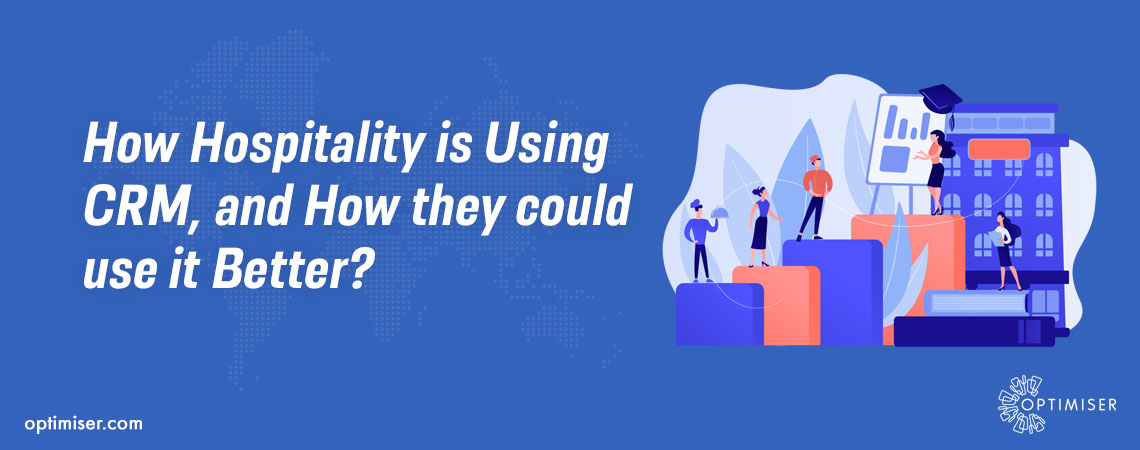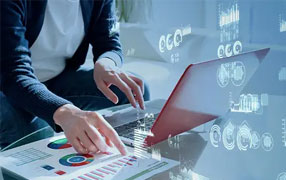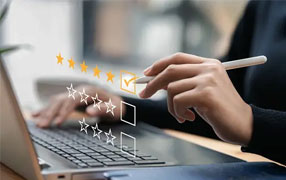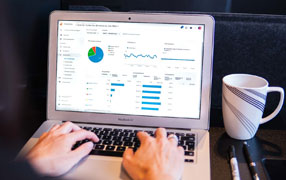
How is the Hospitality Industry Using CRM, and How Could They Use it Better?
CRM for hotels is not a new concept, but many are hesitant to try it out as they stick to the legacy software built with the hotel. However, people do not realise that legacy software loses relevance with the fast-changing trends around the world.
Hotels that have adopted a Customer Relationship Management system have observed that it has made them more efficient. However, there are still ways how hospitality can use CRM better.
CRM in Hospitality
1. Easy Integration
A CRM that integrates with other platforms is far more effective than one that doesn't. For hotel CRM, integrations are necessary. The bookings may come from several channels, and the system will have to capture the data and update it.
Third-party websites like Trivago, Expedia etc., bring in about 40 to 45 percent of monthly business for several hotels.
2. Multi-channel communication
A hotel CRM is used for multi-channel communication to update the guest about their hotel bookings and status. Online messages, emails, text message updates about the hotel can be shared with the customers to maintain a good CRM interaction record.
3. Automations
CRMs like Optimiser are automated with intuitive workflow management. This removes the need to accomplish rote tasks and improves productivity within the organisation. Once these manual tasks are cut down, you can focus more on the customer needs.
.jpg)
4. Affordable
Smaller hotels need CRM as well. Having a complex and over-the-top expensive CRM is not the solution. Finding a CRM that suits your individual needs is the answer. If CRM is complex and makes your life that much harder, then there is no point in it. CRM solution is offered by several companies in different price ranges that can suit small and large businesses. Hotels seek a CRM that fits the budget and will grow with them.
5. Flexible and Secure
A flexible and secure CRM is sought out by hotels as the needs can change at any given point. A flexible CRM will allow the hotel to change its requirements, update the system, and adapt to the new goals.
However, finding a secure CRM is a priority. Hotels store loads of sensitive customer information such as contact information, Identity proof pictures, Credit/ debit card information, account information etc. Most of the CRMs are cloud-based and generally very secure.
How could Hospitality use CRM Better?
1. Capture guests' information for future use. Hotels can use this data captured from several channels for marketing purposes. Social media and the company's website are the primary sources of data collection, whereas if your CRM integrates with other platforms, data captured there will be useful for hyper-personalisation. Inquiries, requests, reservations as well as suggestion information can be used to analyse the behavioural patterns of the customers to draw an ideal buyer's persons. Once you have that in hand, you can easily bring in more customers with effective marketing and persuasive sales techniques. Any complaints filed by guests can be used to pinpoint the hotel's weaknesses and threats that can harm the business in the short and long run. The marketing department can use all this data to tailor personalised campaigns that capture the customers' interest immediately and alludes them into engaging with the company.
2. One of the top ways Hotels can use CRM better is by automating marketing tactics for improved productivity and seamless and consistent communication with the guests. Email campaigns can be automated and personalised to nurture a fruitful relationship with the guests. One can even set up drip campaigns to welcome new guests and catch them up with the ongoing of the hotel. It will keep the users engaged on social media or any other platform. This is even more beneficial for hotels as you can set up your seasonal promotional emails with personalisation based on data previously collected and gain more bookings with relevant packages and discounts.
.jpg)
3. CRM is used for improving customer experience. Hospitality is about customer experience. Using CRM to improve the hotel's customer experience by sending out personalised emails to guests to confirm bookings and reminders. This can be done by suggesting to the guest about local attractions, restaurants to try, and even adding an accessory to the room that aligns with the customers' profile like putting in a flower vase, adding green tea to the complimentary tea/ coffee station etc. Suppose the guests are visiting for the second time. In that case, you can use the previously stored data to improve the customer experience and increase their satisfaction.
4. Managing operations with the hotel expenditure is a big task. Having a proactive task that will cut down the expenses is important, but what if the software did that for you? CRM can reduce operational costs by cutting down unnecessary expenses. CRMs can automate tasks for the hotel staff and employees by automating room service schedules, kitchen duties, cleaning duties, guest arrival information, staff rostering, calculation of tips and salary etc. Any property related issues can be tracked using a CRM by opening an inquiry and following up with it until it is resolved.
5. Any conversation with the guests while at the hotel and/ or otherwise can be captured to create a centralised profile database. This is available to the sales agents and the hotel staff from anywhere and at any time. Whether it is about reservations or client reviews, all the information will be automatically updated within the system. Your employees will not have to finish tedious administrative tasks, which will further improve productivity within your organisation.
SUMMARY
There is a huge advantage that CRM offers to hotel owners. Apart from streamlining the operations, it can cut down expenditures and help in staff management, making the customer experience memorable. When implemented, CRM can aid hotel owners in growing their business effectively and consistently. The best part is that with CRM, there is always room to improve.

30 days free trial. No credit card required
 One powerful platform
One powerful platform
 Simple to use
Simple to use
 Comprehensive
Comprehensive



